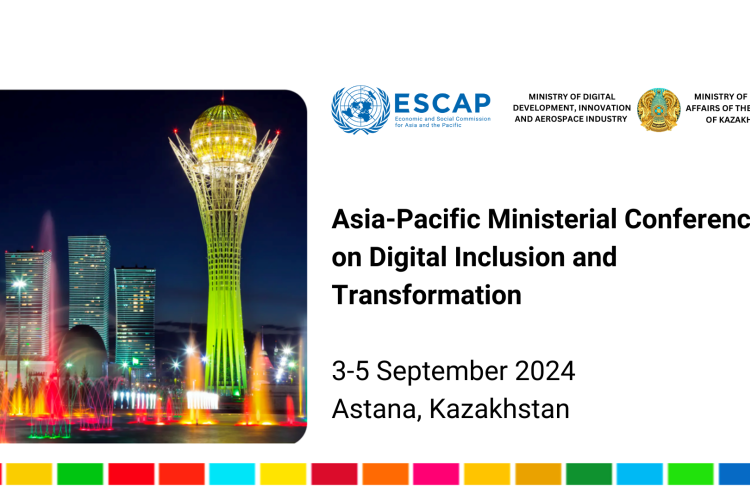Asia-Pacific countries agree on inclusive technology and innovation policies to achieve Sustainable Development Goals
Senior government officials from Asia and the Pacific, along with civil society representatives and the private sector have committed to promote more inclusive technology and innovation policies to deliver the Sustainable Development Goals (SDGs), at a high-level meeting in Bangkok this week.
The Committee on Information and Communications Technology (ICT), Science, Technology and Innovation (STI) held by the United Nations Economic and Social Commission for Asia and the Pacific (ESCAP) from 29 to 31 August, concluded that major transformations are needed in the way we use technology to advance the SDGs in the region.
In his opening remarks, acting Executive Secretary of ESCAP Mr. Hongjoo Hahm highlighted that technology can fuel equality and narrow the growing digital divide, but only if it is inclusive and addresses the need to leave no one behind.
“STI and ICT have helped promote economic growth and social development in this region but not in a balanced manner. There has been enormous growth in Asia and the Pacific, yet many countries and segments of society are still well behind the curve,” said Mr. Hahm. “The question we must ask is how can STI and ICT be used to better promote the economic pillars of the SDGs? How can we make this agenda more inclusive, more socially responsible and more in tune to the environment?”
In his remarks, H.E. Dr. Pichet Durongkaveroj, Minister of Digital Economy and Society, Thailand emphasized the need to ensure that people in rural areas, particularly young people and those most vulnerable are well-equipped to enter the digital age.
“We need to introduce e-commerce to people in rural areas that have good products to sell not just to their community, but to the world,” he said. “There are many digital opportunities which we can use for public good and to support the SDGs, and we aim to use the Thailand 4.0 plan to reduce disparity, promote more inclusion, improve economic competitiveness and ensure sustainability.”
Dr. Michiharu Nakamura, UNIATT 10 Member-Group (2018-2019), Senior Advisor (former President), Japan Science and Technology Agency added, “To harness STI for addressing the SDGs, we need holistic, multi-disciplinary and holistic approaches. This can be made possible when each country carefully considers how they can integrate STI into their national development strategy and policy and formulate the appropriate STI for SDG roadmaps according to their vision.”
Considering these challenges, the Committee agreed to develop national STI Roadmaps for the SDGs, and reiterated the importance of capacity-building in the areas of technology transfer and designing of appropriate STI policies.
While noting that rapid digital and space innovations represented key frontier technologies with the potential to bring transformative changes to the implementation of the 2030 Agenda, the Committee emphasized that scaling up ESCAP’s regional cooperation mechanisms including the Asia-Pacific Information Superhighway, the Regional Space Applications Program, and its Regional Drought Mechanism, could bring qualitative breakthroughs in ESCAPs contributions to the 2030 Agenda.
The outcomes of the upcoming Third Ministerial Conference on Space Applications, co-organized by the Government of Thailand and ESCAP in October, will also have far-reaching implications for the region’s sustainable development trajectory over the next decade.
The Committee underlined that capacity-building programs of the UN Asian and Pacific Training Centre for Information and Communication Technology for Development (APCICT) and the Asian and Pacific Centre for Transfer of Technology (APCTT) could further augment this potential.
The Committee also highlighted that cross-government cooperation, intergovernmental knowledge-sharing and consensus-building, and honest, open and regular discussion with civil society and the private sector will be critical to ensure that frontier technologies have a positive impact on sustainable development. To facilitate this, the Committee agreed to host the inaugural Asia-Pacific Innovation Forum as a platform to spur open and collaborative innovation.






